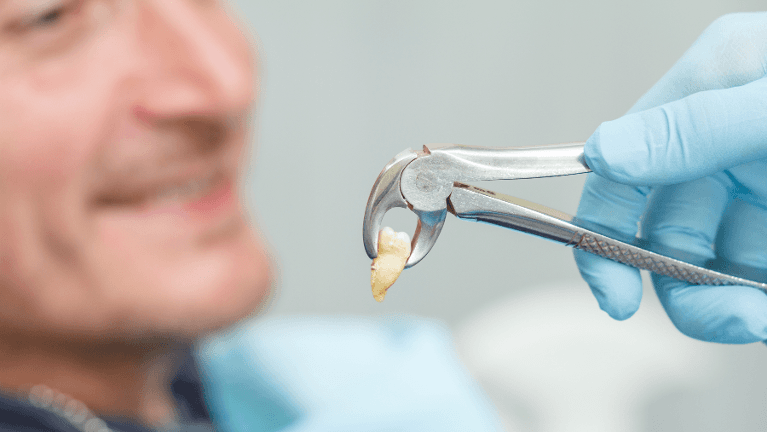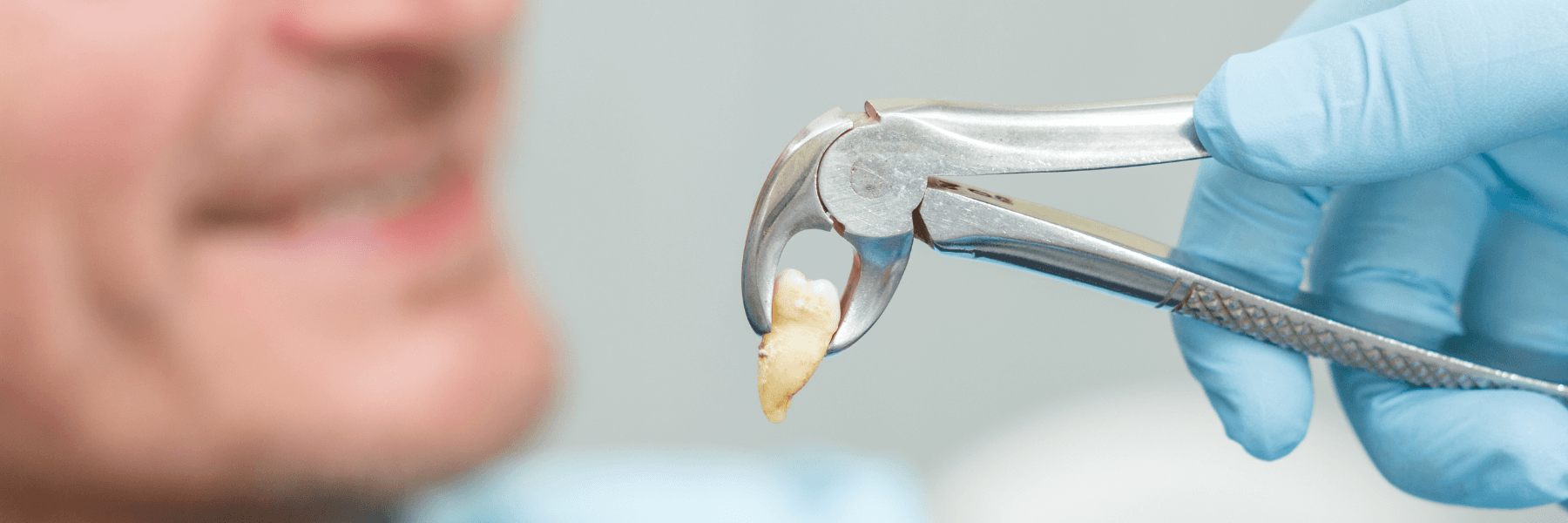
At Webster Groves Dental, our priority is to help you maintain a healthy smile for a lifetime. We believe in the power of preventive care and strive to keep your natural teeth intact. However, there are instances when tooth extractions become necessary to preserve your overall oral health. Whether due to infection, trauma, or other complications, extractions can sometimes be the best option to maintain a pain-free, functional, and healthy smile.
In this blog, we will cover the most common reasons for tooth extractions, what to expect during the procedure, and the options available for replacing an extracted tooth.
Common Reasons for Tooth Extractions
Although tooth extractions are typically a last resort, several circumstances can make them necessary for your oral health:
1. Severe Tooth Decay or Infection
- When decay penetrates the inner layers of a tooth and reaches the pulp, it can cause a severe infection. In some cases, root canal therapy can save the tooth. However, if the infection is too advanced and cannot be effectively treated, extraction may be the best option to prevent the spread of infection to other teeth or your jawbone.
2. Advanced Gum Disease (Periodontitis)
- Gum disease is a leading cause of tooth loss in adults. In its advanced stages, periodontitis can cause the bone and tissues supporting the teeth to deteriorate. If the damage is extensive, the affected tooth may become loose and require extraction to preserve the health of surrounding teeth and gums.
3. Impacted Wisdom Teeth
- Wisdom teeth often don’t have enough room to emerge properly, leading to impaction. Impacted wisdom teeth can cause pain, infections, and alignment issues in your other teeth. In these cases, extraction is typically recommended to avoid complications.
4. Overcrowding
- If your teeth are too large for your mouth or if overcrowding prevents proper alignment, your dentist may recommend extraction. This is especially common in orthodontic treatments where removing one or more teeth helps create the space needed to straighten the remaining teeth.
5. Severe Trauma or Fractures
- Teeth can be broken or cracked due to accidents, sports injuries, or other trauma. If a tooth is damaged beyond repair and cannot be restored with treatments like crowns or fillings, extraction may be necessary to eliminate pain and prevent further complications.
6. Preparation for Dentures or Dental Implants
- In some cases, patients may need to have teeth removed to prepare for full or partial dentures, or for the placement of dental implants. This ensures a proper fit and optimal functionality for the restoration.
The Tooth Extraction Procedure
At Webster Groves Dental, we understand that the thought of tooth extractions can cause anxiety. However, Dr. Matthew Wenzel and our compassionate team are committed to making the process as comfortable as possible. Depending on your needs, you may require either a simple extraction or a surgical extraction.
- Simple Extractions are performed on visible teeth using a local anesthetic. Dr. Wenzel will carefully loosen the tooth and gently remove it, ensuring minimal discomfort.
- Surgical Extractions are required for teeth that are not easily accessible, such as impacted wisdom teeth or teeth broken off at the gum line. These extractions may require an incision in the gum and are typically performed with local anesthesia and, in some cases, sedation for enhanced comfort.
After your extraction, Dr. Wenzel will provide you with detailed post-care instructions to help you recover quickly and avoid complications. Following the care instructions is crucial for a speedy recovery, as it helps prevent common issues such as dry socket and infection.
Tooth Replacement Options After Extraction
Although losing a tooth is never ideal, Webster Groves Dental offers several options to restore the appearance and function of your smile. After an extraction, you may be a candidate for:
1. Dental Implants
- Dental implants are one of the most popular and effective tooth replacement options. They involve placing a titanium post into the jawbone, which acts as a foundation for a custom-made crown. Implants look and feel like your natural teeth and can last a lifetime with proper care.
2. Dental Bridges
- A dental bridge is an artificial tooth held in place by the adjacent natural teeth. This option is less invasive than implants and is a great way to replace one or more missing teeth in a row.
3. Dentures
- Dentures are a removable option for replacing multiple teeth. Full or partial dentures can restore your ability to speak and eat comfortably while also enhancing the aesthetics of your smile.
Dr. Wenzel will discuss the best tooth replacement options for your specific situation to ensure you regain full functionality and a beautiful smile.
Preventing Tooth Extractions
At Webster Groves Dental, we emphasize the importance of preventive care to avoid the need for extractions. Regular dental checkups, good oral hygiene habits, and timely treatment of dental issues can help you keep your natural teeth for life. However, if an extraction is necessary, our team is here to ensure you receive the best care possible.
Contact Webster Groves Dental Today
If you believe you may need a tooth extraction or are experiencing pain or discomfort, don't hesitate to reach out to Webster Groves Dental. We are here to help you maintain a healthy smile. Contact us today at (314) 918-9666 to schedule an appointment and learn more about your treatment options.
Webster Groves Dental is conveniently located at 8045 Big Bend Blvd Suite 203 in Webster Groves, MO. We would love to welcome you to your new dental home.

